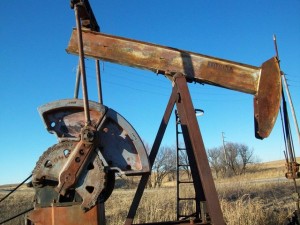
Via the powder blue Satan, an instant classic in the emerging genre of parody far superior to the original:
I was reminded of this when—I can see certain readers rolling their eyes already—I read the news, last September, that numerous California cities, including Oakland and San Francisco, had filed lawsuits against Exxon, BP, and several other oil companies. The cities argue that rising sea levels, caused by global climate change, driven by fossil fuel consumption, will cause billions of dollars in property damage, and that “big oil” should foot the bill for costly infrastructure projects to shore up below-sea-level neighborhoods and oceanside communities.
If you believe the science is settled and the models are correct, of course it makes sense to take a page from the “Big Tobacco” lawsuit playbook. If it were the case that Exxon and the others were acting in ways that could ruin much of the California coastline, with full knowledge of the certain results of their conduct, it would indeed be just to ask them to foot the bill for protecting our cities and communities.
But I can’t help but think of those Navy prognosticators, who probably knew more about computers than just about anyone else in the United States government but didn’t know what Silicon Valley was up to right at that very moment.
The only real way to push back against the gratuitous provocations of the NYT editorial page or the dogsh*t political coverage at NPR is to send it up, up and away. Merely disagreeing only confirms their primary, fundamental fallacy: “Hey! If both sides are criticizing us, we must be right!” – a sweet spot only further plaqued with the appearance of even-handed contrarianism. This is more like transmitting articles through a ridicule device. One can only hope it embarrasses the other Stephens and his colleagues, if for nothing else the flimsiness of their shoddy talents.

